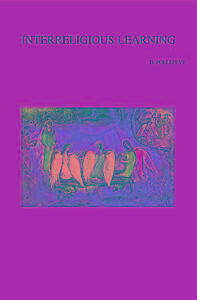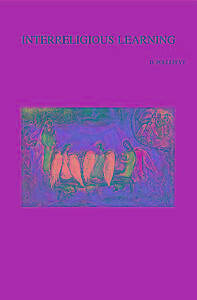
- Afhalen na 1 uur in een winkel met voorraad
- Gratis thuislevering in België vanaf € 30
- Ruim aanbod met 7 miljoen producten
- Afhalen na 1 uur in een winkel met voorraad
- Gratis thuislevering in België vanaf € 30
- Ruim aanbod met 7 miljoen producten
Zoeken
Omschrijving
The growth of secularisation, pluralism and globalisation have placed the West's traditional monoreligious education under pressure. Christianity no longer possesses a privileged position in Western Europe. Since the 1970's, a number of scholars have been trying to formulate an answer to this question of multireligiosity by developing a multireligious concept of religious education. As both a critique on, and alternative for, the multireligious model, scholars in the 1990s developed the interreligious model of religious education. This aproach distinguishes itself from monoreligious pedagogy through acknowledging plurality among the pupils as both a part of departure and as a possible end result of religious education. Moreover, it openly approaches the plurality of religions and worldviews as a learning opportunity. Religious education thus becomes a place of encounter and dialogue between different religious convictions. Interreligious learning further distinguishes itself from the multireligious model by overcoming a purely objective representation of the multitude of religions. In the interreligious model, students are not only informed, but are introduced to the cognitive and value commitments underlying the different religions, giving them the opportunity to enrich and develop their own personal religious identity. The teacher takes an explicit and particular religious (Christian) standpoint, but also tries to bring in other committed religious and philosophical voices. The interreligious model aims to teach students that holding a proper religious identity while having an openness to the religious other is not necessarily self-contradictory. What is more, that authentic religiosity is able to welcome the other in his/her vulnerability and strength as a witness to God. In this volume, scholars from various disciplines (theology, pedagogy, psychology and ethics) and from different religious backgrounds (Jews, Christians and Muslims) face up to a total of ten challenges related to interreligious learning. Challenges that may act as obstacles to the acceptance of this possible new paradigm for religious education.
Specificaties
Betrokkenen
- Auteur(s):
- Uitgeverij:
Inhoud
- Aantal bladzijden:
- 340
- Taal:
- Engels
- Reeks:
- Reeksnummer:
- nr. 201
Eigenschappen
- Productcode (EAN):
- 9789042918658
- Verschijningsdatum:
- 29/10/2007
- Uitvoering:
- Paperback
- Formaat:
- Trade paperback (VS)
- Afmetingen:
- 163 mm x 244 mm
- Gewicht:
- 612 g

Alleen bij Standaard Boekhandel
+ 160 punten op je klantenkaart van Standaard Boekhandel
Beoordelingen
We publiceren alleen reviews die voldoen aan de voorwaarden voor reviews. Bekijk onze voorwaarden voor reviews.







